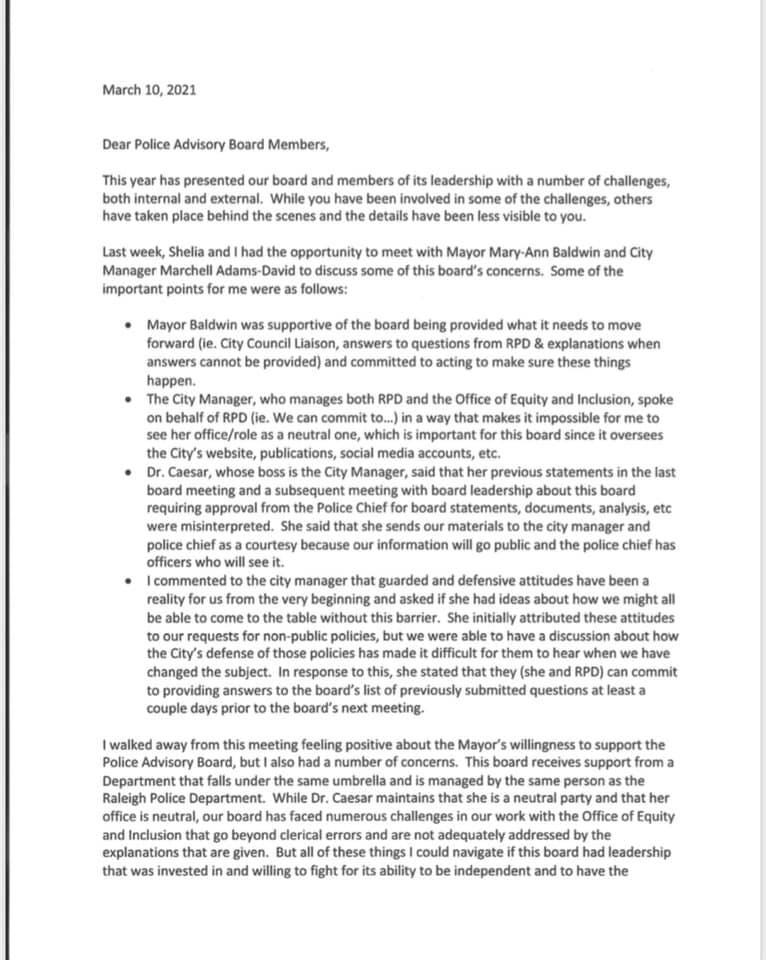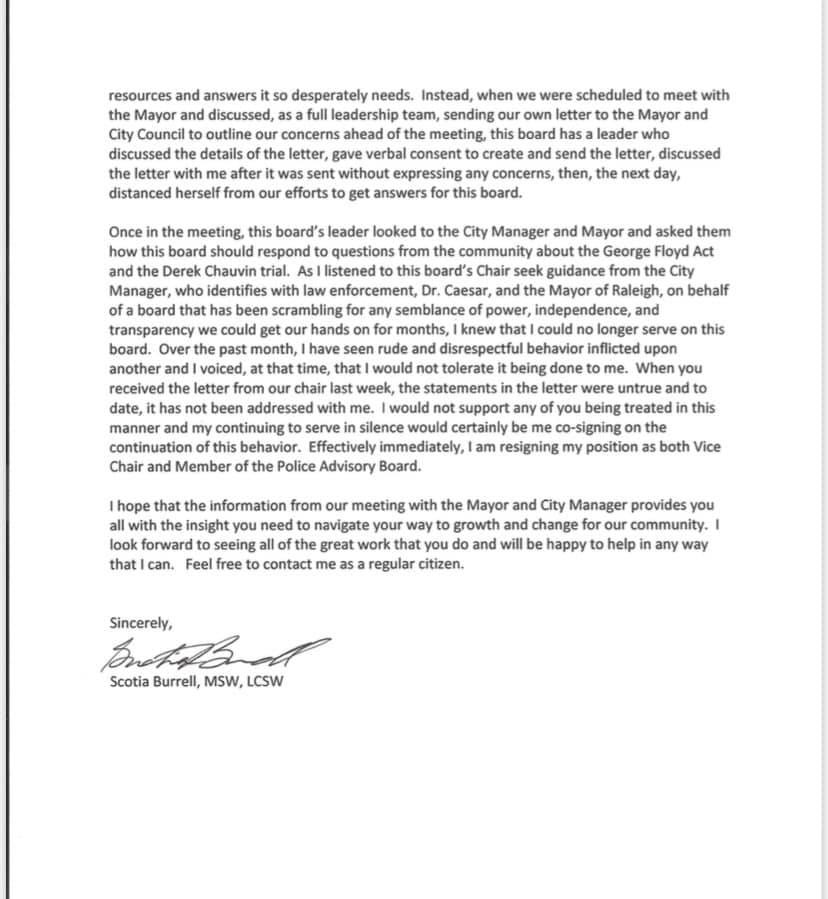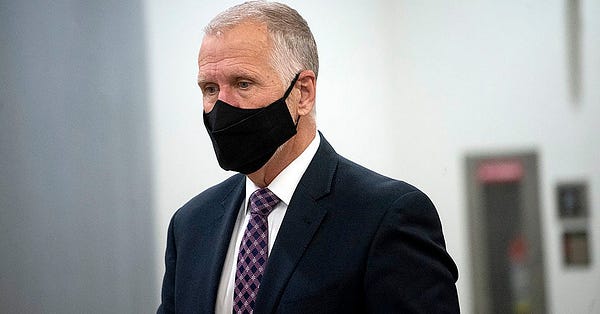NC’s Prohibitionist Past vs. Its Entrepreneurial Future
A Durham distiller goes to war against the ABC + Cooper and the NCGA reach a school agreement + trouble on Raleigh's cops board + a developer strongarms Chapel Hill + the House passes the COVID bill
Thurs., March 11, 2021
Hey everyone. Thank you for joining me. And once again, thank you for putting up my recent absences. Project 1 is in the books (see below). Projects 2, 3, and 4, are still in progress, but those should be more marathons than sprints.
Weather: Warm, sunny, springy, high of 75. Soak it in, because we’ll be back to rain and misery next week.
Today’s Number: 44,000,000,000
Dollars of student loan debt carried by residents of North Carolina as of 2019, according to the Center for Responsible Lending.
That amount has tripled in a decade. North Carolina has had the second-highest increase in student loan debt.
Progressives want the Biden administration to forgive up to $50,000 in debt. Biden has said he might do $10,000.
Sen. Richard Burr has introduced legislation that would cap repayment at 10% of discretionary income and forgive loans after 20 years. (After 20 years of paying my loans, I’m pretty sure I’ll owe more than when I started.)
Rep. Madison Cawthorn, whom the N&O decided to quote as if he matters, thinks forgiving student loan debt will make us all dependent on the government or whatever.
Cawthorn, a shameless liar, attended a small Christian college for approximately 37 seconds. During that time, he racked up numerous allegations of sexual harassment and assault.
+TODAY’S TOP 6
1. NC’s Prohibitionist Past vs. Its Entrepreneurial Future
A week ago, I began work on what I thought would be a quick-turnaround story about a local distiller’s fight with state regulators. But the story soon grew more complicated. I found a home for it at The Assembly. (The site is behind a $3/month paywall, but you get a free story a month.) Here’s an excerpt:
When Sean Hamilton pulled into Mystic Farm & Distillery’s dirt parking lot on the eastern edge of Durham on the morning of November 14, 2019, he knew what he was looking for.
During an inspection a week earlier, the North Carolina Alcohol Law Enforcement special agent had spotted the 17 liquor bottles—various whiskeys, mostly—in Mystic’s kitchen. He’d asked about them: You don’t serve those? Assured they didn’t—with its distillery permit, Mystic can only serve what it makes—he’d left.
So after Mystic co-owner Jonathan Blitz showed Hamilton and his intern around—the converted barn filled with metal tanks, the cozy front room with its wooden bar, the front porch looking out over 20 acres of corn and wheat fields—Hamilton asked to speak with Blitz alone.
“I’m going to have to seize those bottles in your kitchen,” he said. Blitz asked why. “Because you can’t sell them,” he answered.
Blitz acquiesced, but he still didn’t understand what he’d done wrong. He sent an email to an Alcoholic Beverage Control (ABC) Commission attorney, but didn’t hear back. (He was later told he’d sent it to an old address.) Months passed. By May, he’d almost forgotten about it.
Then a “Notice of Alleged Violation” arrived in Blitz’s mailbox. The ABC accused him of “[possessing] spirituous liquor upon premises where such possession is not authorized by law.” It proposed a settlement: pay a $1,000 fine, or have Mystic’s permits suspended for 10 days.
Most distilleries would consider the fine the price of doing business. A lawyer would cost more than a grand, after all. But Blitz was a lawyer—and he was frustrated. To his mind, ALE agents and ABC officials were contorting the rules, while his industry kept quiet for fear of antagonizing the regulators. Someone needed to fight back, he decided. And if he didn’t do it, no one would.
To outsiders, the stakes were small: a hair-splitting interpretation of a pedantic regulation. But to Blitz, it was about much more than that.
“There is no way somebody’s gonna pay their lawyer $40,000 to litigate some shit like this,” he told me last week. “We all have businesses to run. You pay the fine and you walk away. The thing is, I don’t want to be bullied.”
🥃 🥃 🥃
Eighty-four years after the General Assembly established the ABC Commission, North Carolina remains one of 17 states where the government controls the supply of liquor, and the only one where local boards control retail sales. The New Deal-era artifact has persevered, despite polls showing that voters want to privatize the system and campaigns seeking to do just that.
For lawmakers, the twin allures of revenue and rectitude have proven too strong to ignore.
In the 2019 fiscal year, ABC retail stores raked in more than $1.2 billion, of which almost $350 million went to the state’s general fund and $85 million went to city and county governments. North Carolina also has one of the lowest rates of excess drinking, and the fewest liquor stores per capita, in the U.S.
The ABC was born in the aftermath of Prohibition and bathed in the state’s long history of teetotalism. North Carolina was the first state to outlaw “intoxicating spirits,” and one of two that refused to ratify the 21st Amendment. It banned liquor by the drink until 1978. It banned beer stronger than Budweiser until 2005. It still forbids happy hours.
And unlike agencies that are accused of being too close to the industries they regulate, the ABC has a certain hostility toward alcohol producers encoded in its DNA. …
Last month, the ABC sent the Distillers Association a 21-page draft of potential rules for distilleries for informal comments, which the association immediately rejected as “onerous and unreasonable.” Among other things, they would force distilleries to pay for renovations and additional staff, all to achieve a goal of questionable merit: physically separating sales of liquor bottles from sales of mixed drinks.
“If these rules went into effect, everybody in the industry would suffer $20,000 to $100,000 in costs in the first year,” Blitz says. “What you have right now is a situation where the industry is galvanized against the rulemaking they’re trying to do and is refusing to negotiate. It’s just ludicrous.”
2. We’ve Got a School Deal
When Governor Cooper vetoed the school reopening bill, he said he wanted kids back in school but needed Republicans to negotiate with him—something they generally do when there’s no other choice. After key Democrats bent to Cooper’s demands during the override vote, they had no choice. Now, we have an agreement.
Districts will be required to provide full-time, in-person instruction to elementary students—no social distancing required—and will have the option to do so for middle and high schoolers.
Middle and high schools can open under Plan A (in-person) or Plan B (a mix of in-person and remote, as social distancing is required, so space is limited).
The NCAE isn’t happy: “It is deeply disturbing that the governor and legislative leaders failed to acknowledge the work that educators have been doing to keep students engaged and learning during the worst pandemic in a century while effectively absolving themselves of any further responsibility for the health and safety of our public schools and those who learn and work in them.”
▶️ OTHER STATE NEWS
It will never not amaze me that North Carolina allows cuckolded husbands to take their jealousy to court. After former Republican state Sen. Rick Gunn had an affair with his legislative assistant, her husband sued for up to $3 million. Gunn just settled for an undisclosed amount. (WRAL)
The Senate is again trying to force the state’s sheriffs to do ICE’s bidding. The sheriffs of Wake and Mecklenburg Counties told lawmakers to leave them alone. (WRAL)
Two more people have been added to the list of innocent men North Carolina has sent to death row. (Neither was executed.) The number now stands at 12. (Policy Watch)
Some good news: More than 1 million North Carolina residents are fully vaccinated for COVID. (CBS 17)
3. We’ve Got a Cop Watch Problem in Raleigh
Yesterday, two of the 10 members of the Raleigh Police Advisory Board quit, blaming the leadership of chair Sheila Alamin Khashoggi. At-large member Greear Webb announced the news and posted the resignation letters of vice-chair Scotia Burrell and Stacey Carless on Facebook.
Burrell’s letter argues that Alamin Khashoggi is too aligned with the police infrastructure the board has been established to oversee. Carless says she was disrespected. Burrell’s letter is below.
“The historical lack of trust between Raleigh, (specifically the police department) and us—citizens—is troubling and frustrating. The inconsistencies among Board leadership are also cause for great concern,” Webb wrote.
Raleigh Demands Justice will host a virtual press conference this morning.
4. We’ve Got a Sh*t Sandwich
Late last month, we talked about Stackhouse Properties, the Durham developer bullying the town of Chapel Hill into approving its self-storage facility that no one wants.
Stackhouse threatened that if the town council didn’t go along, they’d evict 74 families that live in a mobile home park Stackhouse owns and build an apartment building. It was, a town source told me, a “shit sandwich.”
In its first vote, the council voted 5–2 to approve the project. The second and final vote was last night.
To make sure no one missed the point, Stackhouse reportedly told the mobile home park residents that they were getting evicted unless the town did as instructed.
“According to advocacy group El Centro Hispano, the families who live there were told if that if [the] town council does not vote in Stackhouse Properties' favor, they will all be evicted. Tenants are accusing the property owner of holding families hostage over this vote.
“Eliazar Posada, El Centro's acting CEO, believes the families, who he said are mostly Hispanic and low-income, are being used as pawns to pressure Council into approving the request.” (WRAL)
Same source: “There aren’t enough F-bombs.”
The council voted 5–3 in favor of the project. In return, Stackhouse agreed to rent protections for the mobile home park and to make the storage space smaller. (Chapelboro)
5. We’ve Got a Stimulus
With every Republican and one probably-getting-primaried Democrat in opposition, the House passed the $1.9 trillion COVID relief package, sending the first major piece of legislation to President Biden’s desk. He’ll sign it on Friday. Wall Street was happy. The Dow jumped about 500 points by the afternoon.
The bill includes some less-advertised tax increases: $60 billion raised through three obscure provisions. (Politico)
The biggest risk is that Biden is overheating a hot economy.
“It could be a Morning in America moment that further turbocharges an economy already primed to pop, reduces economic inequality, and lofts Biden to the kind of economic hero status enjoyed by the likes of Franklin Delano Roosevelt after the Depression and Ronald Reagan in the boom-time 1980s.”
“Or it could be a fiery accelerant for global markets as gas prices surge, home prices jump, speculative assets soar and investors increasingly fear the kind of sharp inflation spike that can hit with remarkable speed if the government pours too much gasoline on an already warming economy.” (Politico)
At least in the short-term, most economists are leaning decidedly toward the former, with GDP expectations hitting the stratosphere toward the third quarter. (Bloomberg)
Quick thought: Funny how no one was freaking out about overheating when Trump was cutting $1.9 trillion in taxes during an expansion.
The Biden team’s next challenge: Turn a policy win into a political win. (WaPo)
▶️ OTHER COVID NEWS
Biden announced a deal with Johnson & Johnson to purchase an additional 100 million vaccines, which means we’ll be swimming in COVID vaccines before long. (Politico)
Biden will give his first primetime address tonight to mark the anniversary of the emergency declaration order. (CNN)
6. We’ve Got a Roundup
Before we go, a few quick hitters on my radar:
Progressives took over the Nevada Democratic Party—causing the party’s machine, long run by loyalists to Harry Reid, to quit en masse. Per veteran Nevada journalist Jon Ralston: Say goodbye to the most effective Democratic Party in the country. (WaPo, Politico)
The staff of Teen Vogue is revolting over the hiring of their new editor, former Axios scribe Alexi McCammond, who posted homophobic, racist tweets a decade ago while she was a teenager. (NYT)
The state of Arkansas has passed a direct challenge to Roe, banning abortion in all cases except life-endangering medical emergencies. There are no exceptions for rape or incest. The goal is to get a Supreme Court review, hoping the three right-wing judges Trump appointed will overturn precedential abortion rulings. (CNN)
Merrick Garland was confirmed as attorney general—with the vote of Mitch McConnell, who singlehandedly blocked his ascent to the Supreme Court four years ago. North Carolina DEQ Secretary Michael Regan was confirmed as EPA administrator, making him the first Black man to hold that position. McConnell has opposed him because he doesn’t love fossil fuels enough. (WaPo, WaPo, Washington Times)
Finally, another edition of Thom Tillis Has Thoughts About Things™:







